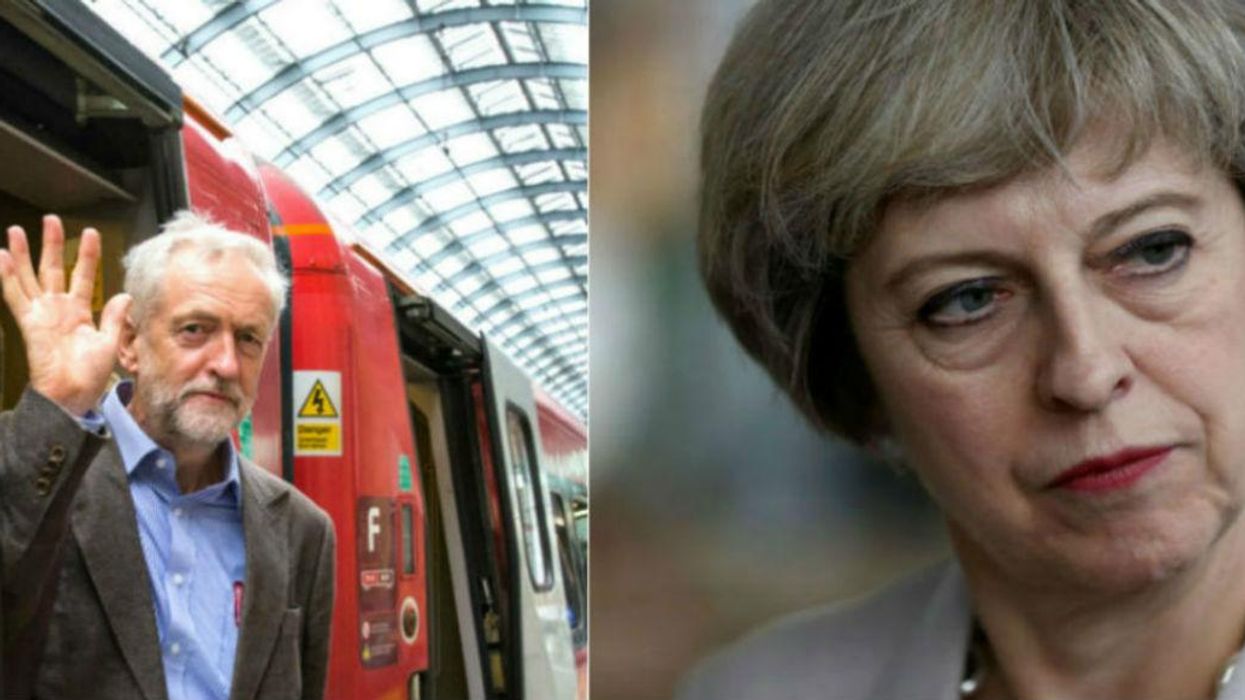News
Joe Vesey-Byrne
Aug 25, 2016

Picture: Rex Features
A 67-year-old man posed on the floor of a train in order to highlight overcrowding on public transport. In other news the fundamental set up of British law is going to be tinkered with by Liz Truss.
In the last general election the Conservatives pledged to replace the Human Rights Act, but then again David Cameron also pledged to complete a full term in office, and yet here we all are. The plan has returned to the forefront of government policy.
While we were all using our CSI skills to decide whether or not there were reserved seats on coach H, and if the angle from the book depository was good enough for Corbyn to shoot himself in the foot, the Conservatives renewed their pledge to scrap the Human Rights Act and replace it with a British Bill of Rights. On Monday the justice secretary Liz Truss told the BBC's Today programme:
We are committed to that. That is a manifesto commitment.
Truss was responding to suggestions the manifesto commitment would be put on the back burner, to avoid a row with the Scottish government who oppose the plan.
The Human Rights Act (HRA) is the British law which incorporates the European Convention on Human Rights (ECHR) into domestic law. The act was brought in by Tony Blair and it means that:
British citizens who think their human rights have been breached can take the case to a British court, rather than the European court in Strasbourg.
All public bodies must respect and protect human rights.
Parliament will seek to ensure all new laws are compatible with the ECHR
The Conservatives have promised to scrap the HRA, and replace it with a 'Bill of Rights' (forgetting that Britain has had one of those since 1688).
The 'Bill of Rights' would not take Britain out of the ECHR, but would replace the Human Rights Act as the British form of implementation.
In a speech in April Theresa May voiced her support for replacing the HRA:
A true British Bill of Rights, decided by parliament and amended by parliament, would protect not only the rights set out in the convention, but could include traditional British rights not protected by the ECHR such as the right to trial by jury.
May has been inured against the act from her time as Home Secretary, when she struggled to deport foreign criminals who used the Human Rights Act to appeal Home Office deportation orders.
In addition the Conservatives want the new bill to clean up the language that was in the HRA. The act said British courts must 'take into account' judgments of the Strasbourg Court. The Supreme Court of the UK has previously interpreted this to mean that British judges should follow the decisions of the Strasbourg Court closely.
According to Full Fact, the new Bill of Rights would replace the term 'take into account' with 'advisory'. While this makes little difference, the larger change would come from the Conservative's plan to introduce a 'Parliamentary procedure to formally consider the judgment'. At present only the government has to respond to rulings by Strasbourg judges, not parliament. The consequences for how this would change the lawmaking process has not yet been discussed by the government.
Civil liberties groups think the Bill of Rights will restrict freedoms guaranteed under the ECHR and is a threat to the absolute ban on torture.
But, more importantly, Richard Branson published some CCTV footage, and has a master plan to fight off the Corbyn rail nationalisation plan that is definitely going to be implemented in the near future.
Here's to effective opposition comrades.
indy100 has contacted the shadow justice secretary Richard Burgon for comment.
More: Virgin Trains accused Jeremy Corbyn of lying, but this Owen Smith joke was arguably even worse
More: As the Tories plan to scrap the Human Rights Act, the one chart that will worry campaigners
Top 100
The Conversation (0)













